The Speed Study Goal
My goal with conducting these Speed Studies is to find out which strategies are the best at improving our site speed.
I’ll implement each strategy using the following approach:
- Setup the strategy on all 8 of our live test sites
- Then for the following 3 weeks, use hourly monitoring via GT Metrix to independently gather the load times. To eliminate the possibility of location bias, I change the test servers each week, starting in Dallas, then London and finishing off in Sydney.
- Next measure the impact of each strategy by comparing the average speed before and after
- Ultimately decide whether the strategy works?
KeyCDN + Cloudflare + WP Rocket Speed Study
With KeyCDN proving to be beneficial when added to WP Super Cache, let’s see if KeyCDN can also speed up WP Rocket?



To kick off this KeyCDN + Cloudflare + WP Rocket Speed Study, we first need to setup KeyCDN. Once that’s complete, we then integrate it into WP Rocket. With Cloudflare already setup, I followed our step by step tutorial on How to Setup KeyCDN with WP Rocket for each of our test sites.
All Setup
I have now followed this process on all 8 of our Live Test Sites.
Next up is 3 weeks of testing – I am curious to see whether KeyCDN will help boost WP Rocket & Cloudflare?
The Results – 29 Oct 2017
After 3 weeks of testing, lets take a look at how our 8 hosts performed with MaxCDN paired with WP Rocket & Cloudflare.
Conclusion
Let’s first compare the combo of KeyCDN, Cloudflare & WP Super Cache with KeyCDN, Cloudflare & WP Rocket? The average load time across 3 different testing locations clocking is 1.06s for WP Rocket, which is 15% faster than WP Super Cache.
When we dig into the 3 locations we test from, all experienced improvements in speed, ranging from 8% in London through to 20% in Sydney. Page Size & Google PageSpeed & Yahoo YSlow Scores were slightly better with WP Rocket.
Let’s now look into the impact of KeyCDN to WP Rocket & Cloudflare.
KeyCDN Impact on WP Rocket
Conclusion
So how did KeyCDN perform when it was added to WP Rocket & Cloudflare? Surprisingly, the average load time across 3 different testing locations clocked in 4% slower than WP Super Cache & Cloudflare only.
Dallas & Sydney experienced small speed improvements of 10% & 2% respectively, but these were offset by a 27% speed reduction in London. Page Size & Google PageSpeed Scores were slightly worse off, while Yahoo YSlow Scores was noticeably better.
So when it comes to making a call on whether KeyCDN was beneficial, the decision is not so clear cut. If your audience is primarily based in Australia or USA, then yes, KeyCDN was helpful. But if London is your target market, KeyCDN is a clear NO.
Individual Host Performance
Let’s now take a look at how our individual hosts performed:
Major Observations
- The comparison between WP Super Cache & WP Rocket are predominantly favoring WP Rocket when it comes to our individual hosts:
- Lightning Base was the only host to experience the same average speed.
- The other 7 hosts experienced faster speeds with WP Rocket, ranging from 6% with GoDaddy up to 23% with Namecheap.
- The overall observation from where I sit is that WP Rocket is the better option when paired with KeyCDN & Cloudflare.
Individual Host Performance – KeyCDN Impact
Major Observations
- The results of adding KeyCDN to WP Rocket & Cloudflare are surprisingly slower for most of our individual hosts:
- Namecheap is the only host to benefit from KeyCDN, recording a minor improvement in speed of 1%.
- InMotion Hosting’s speed was the unchanged.
- The other 6 hosts were slower with KeyCDN, ranging from 1% with SiteGround and Web Hosting Hub up to 14% with Bluehost.
- The overall observation is that KeyCDN has generally had a negative impact on our host’s loading times when paired with WP Rocket & Cloudflare.
What’s Next?
With KeyCDN proving to be ineffective with WP Rocket, lets find out if MaxCDN will do a better job?
So Speed Study #22 will focus on what speed improvement is possible when we bring WP Rocket, Cloudflare and MaxCDN together?



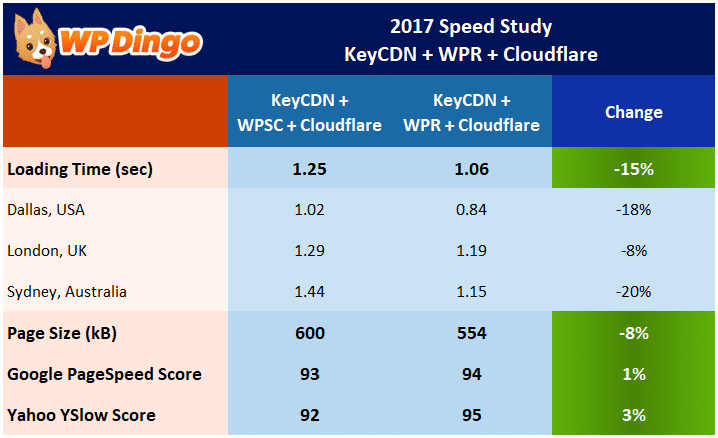
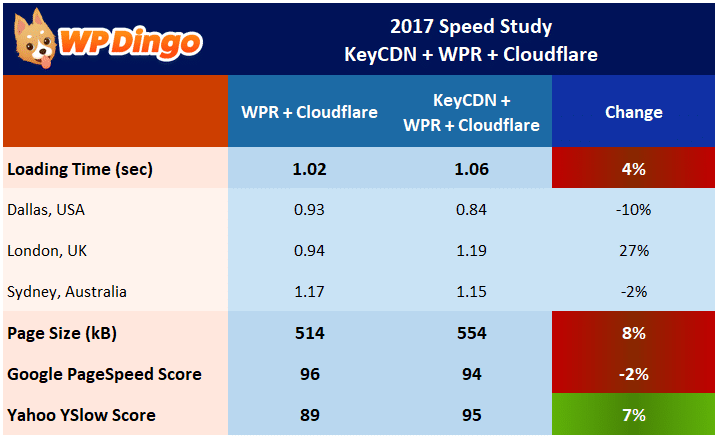
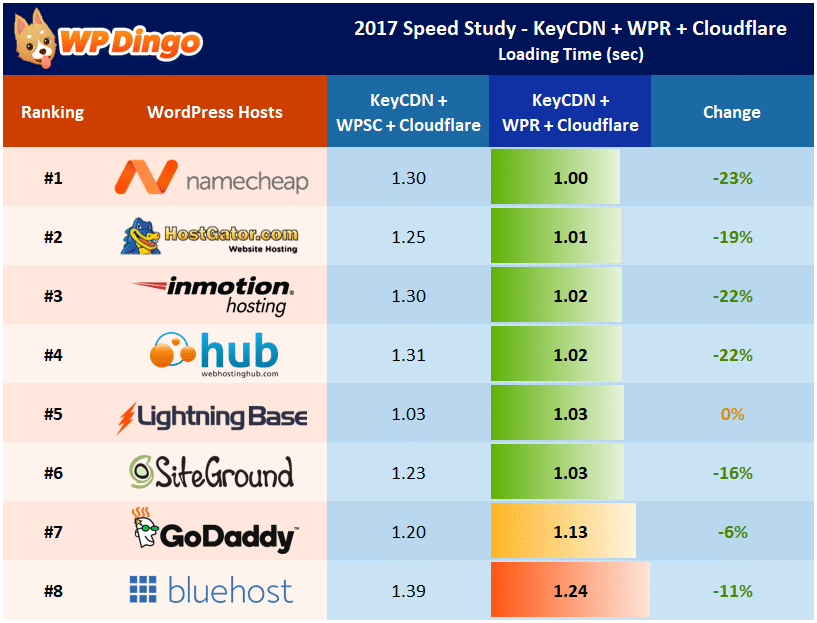
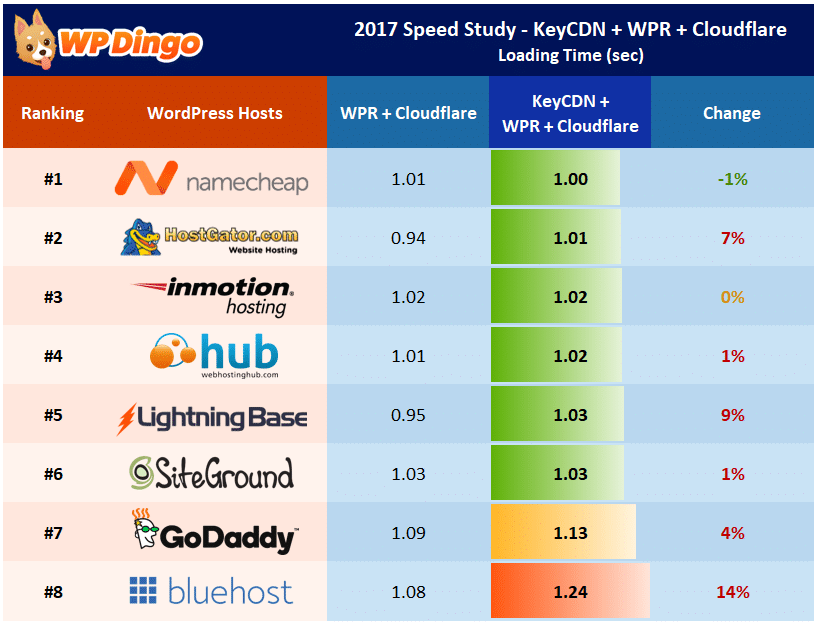


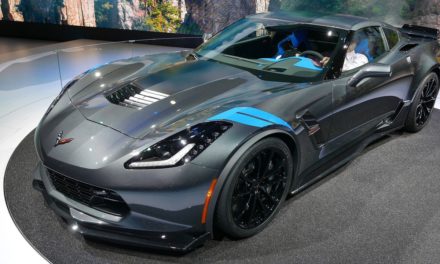

 Hi, I'm Clint!
Hi, I'm Clint!






